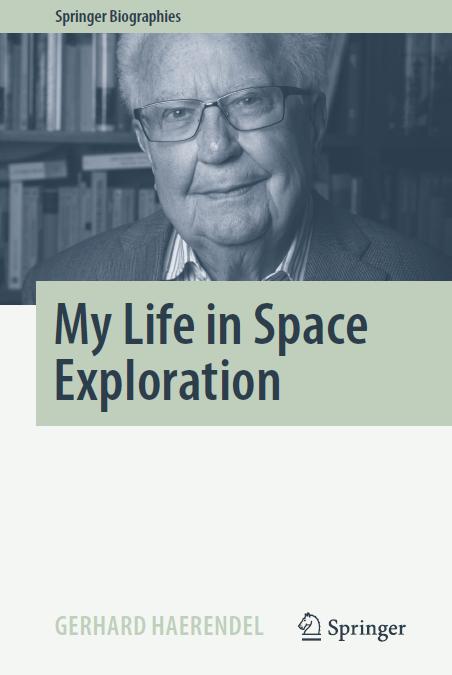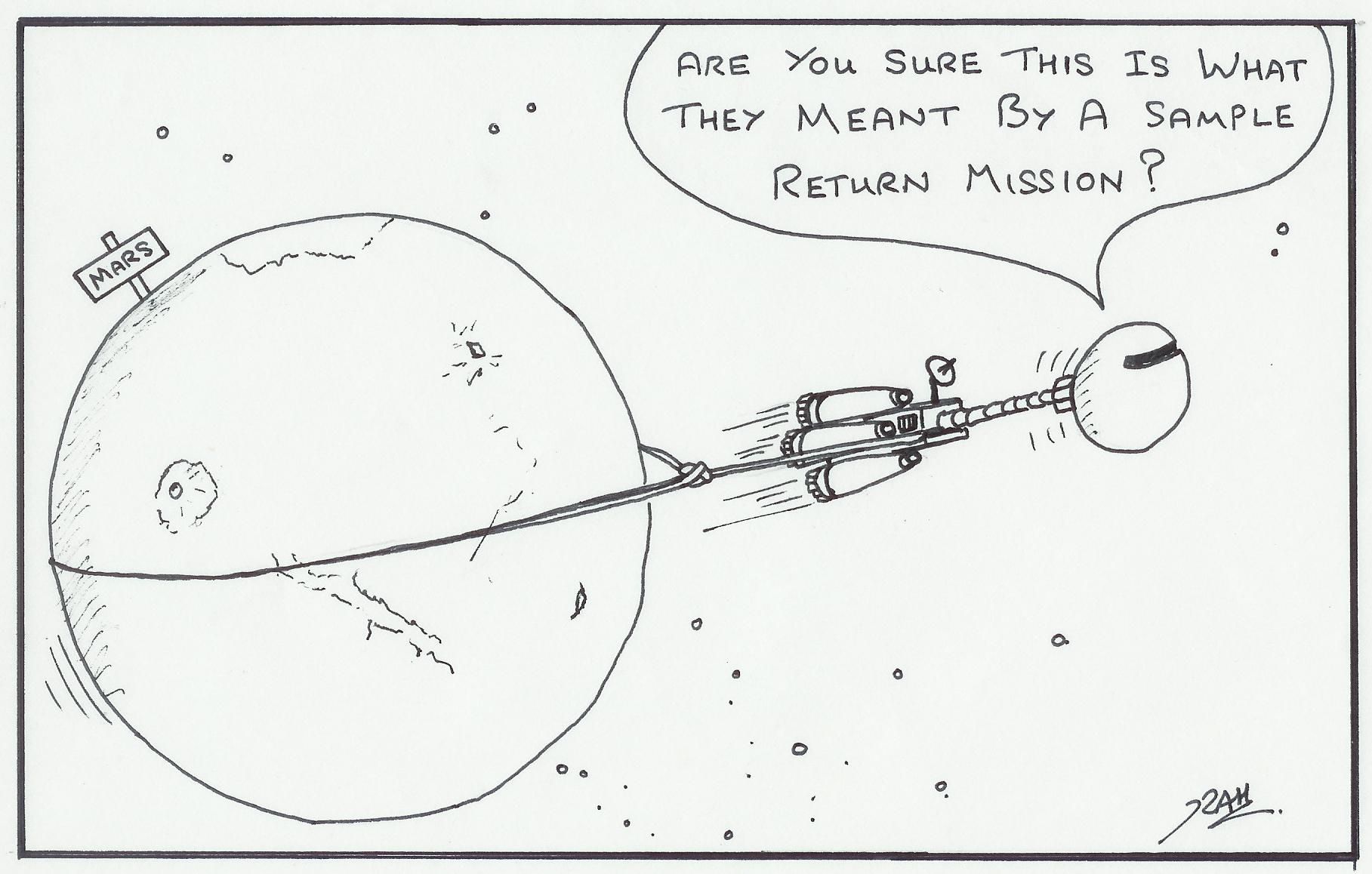
2 minute read
Book Review
My Life in Space Exploration, by Gerhard Haerendel, Springer Nature Switzerland, Cham, 2022
[Karl-Heinz Glassmeier, IGeP, TU Braunschweig,
Germany]
uture needs Origin” is the title of an essay of the German philosopher Odo Marquard. This motto applies especially to such a young field of science as space exploration. Thus, Gerhard Haerendel’s autobiography is a most welcome contribution when discussing the future of our field and community. And Haerendel is indeed a most reliable source of information on the origin and evolution of our field. He is a German national and international pioneer in space exploration, in particular auroral physics, magnetospheric substorms and artificial comets. He was Director of the Max-Planck-Institute for Extraterrestrial Physics in Garching and a former President of COSPAR.
This book is written in a three-fold way. First, Haerendel provides us with some most interesting information about his personal and professional life. This is done with noble reserve. After World War II Germany was to be rebuilt, in many aspects. This opened a strong force for many young scientists in the post war times. Space exploration was a most suitable pathway to rejoin the international science community. Details about this we can learn from Haerendel’s memories.
Second, Haerendel tells us about his mentors and teachers. It is interesting to see the names of co-students and collaborators (the 2nd edition should contain a list of those persons and institutions mentioned), from school days to his later professional life. It shows the mutually supporting and fruitful activity in what Diana Crane calls the “invisible college”. Readers can learn a lot about collaboration and friendly competition, about the inner workings of our scientific community. And younger colleagues can read in Haerendel’s book how they shape a lifelong professional career.
It is also most interesting to prepare a list of names of eminent contributors to the field not being mentioned. This elucidates school building in space exploration and science. Reading Haerendel’s stories about the large number of space projects he was involved in, is also kind of a launch pad for one’s known memories. Being a
‘‘Looking back in another 60 years, space exploration will probably be viewed as a former disruptive technology’’ member of the space science community for more than 40 years, additions and different perspectives came to my mind immediately. And I am sure this will also happen to any other reader. Personal memories as presented by Gerhard Haerendel may trigger discussions, one way or the other. But if somebody takes a different view on aspects Haerendel tells us about, there is AGU’s collection “Perspectives of Earth and Space Scientists”. Or you can prepare your own book. Biographical research is a most rewarding attempt to look into a scientist’s lifeworld and to understand how we do science.

The third path Haerendel walks is science itself, of course. He discusses and details his most important and influential scientific contributions. For a non-physicist, these parts of the book might be inaccessible. But this is why I call the style of writing a three-fold way. You can skip these parts. It does not harm your interest in the other aspects of Haerendel’s story. But if you are more of an expert, you will enjoy these parts.
Haerendel also describes in some detail why and how he escaped the management danger, the danger of being lost in fulfilling merely management duties. But throughout the whole book you realize what he has been: a political explorer and scientist, impacting his community by a large number of project initiatives, some of them successful, others less. Space exploration is a risky field. Looking back in another 60 years, space exploration will probably be viewed as a former disruptive technology, to use a currently fashionable expression. But Gerhard Haerendel teaches us that there are no quantum leaps in our field, just mainly hard work on all social, scientific and technological fields. Continuous development is what space exploration characterizes, with many successes and inevitable failures.
Here is somebody who can tell us about the origin of the science in our field, somebody who knows about personal requirements. For the younger colleagues: keep on running. Haerendel’s past is your future. Read it yourself !





